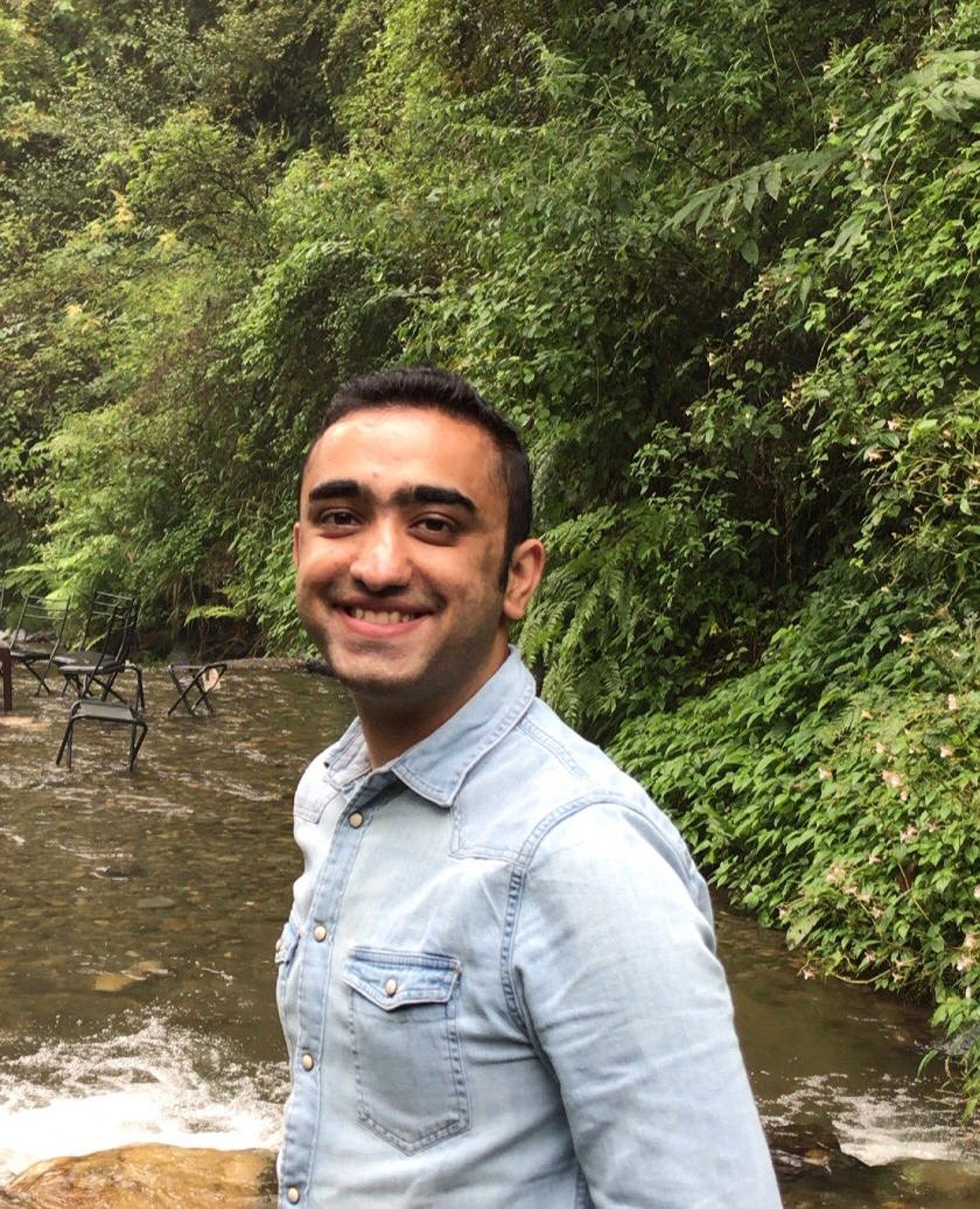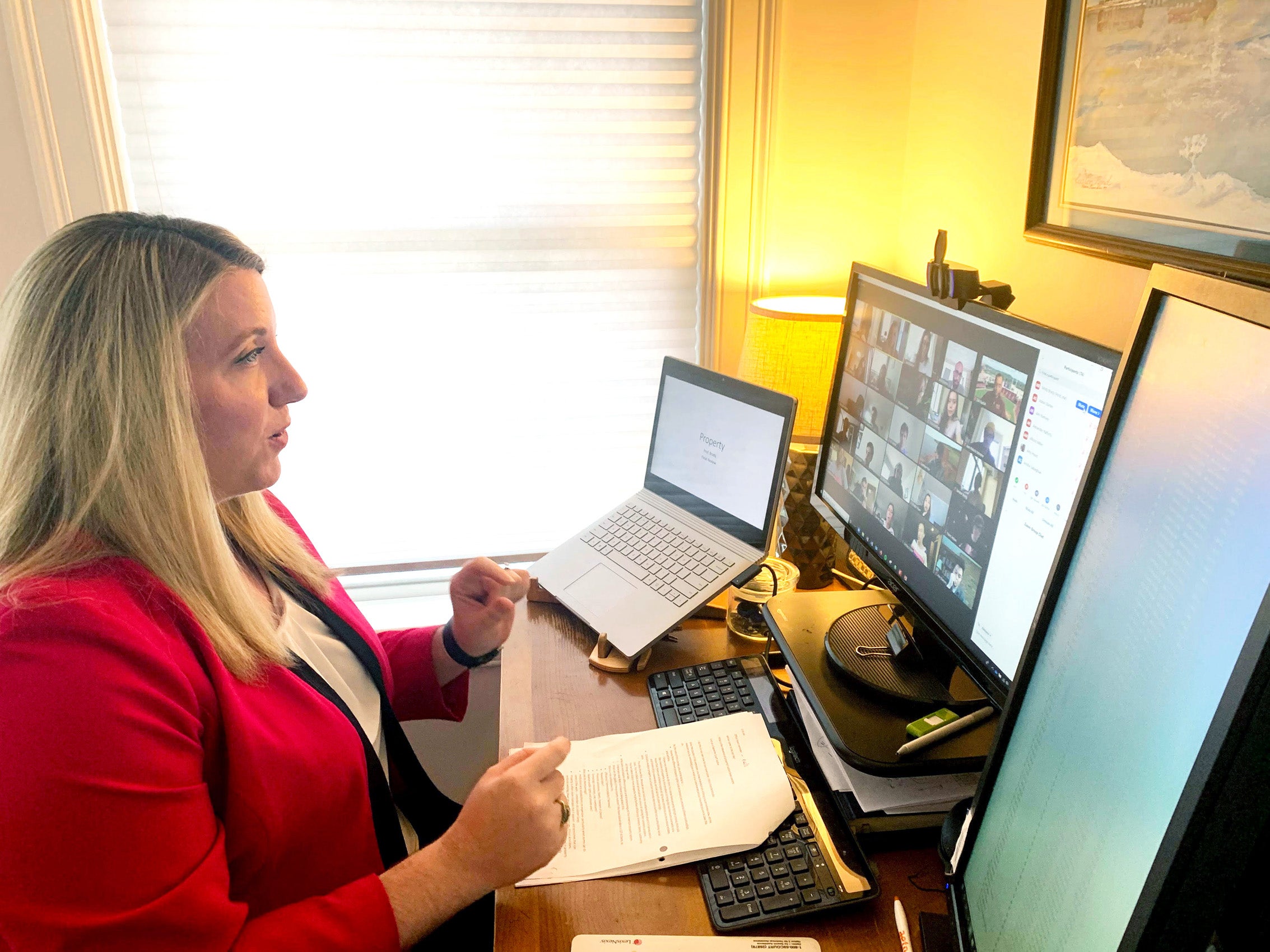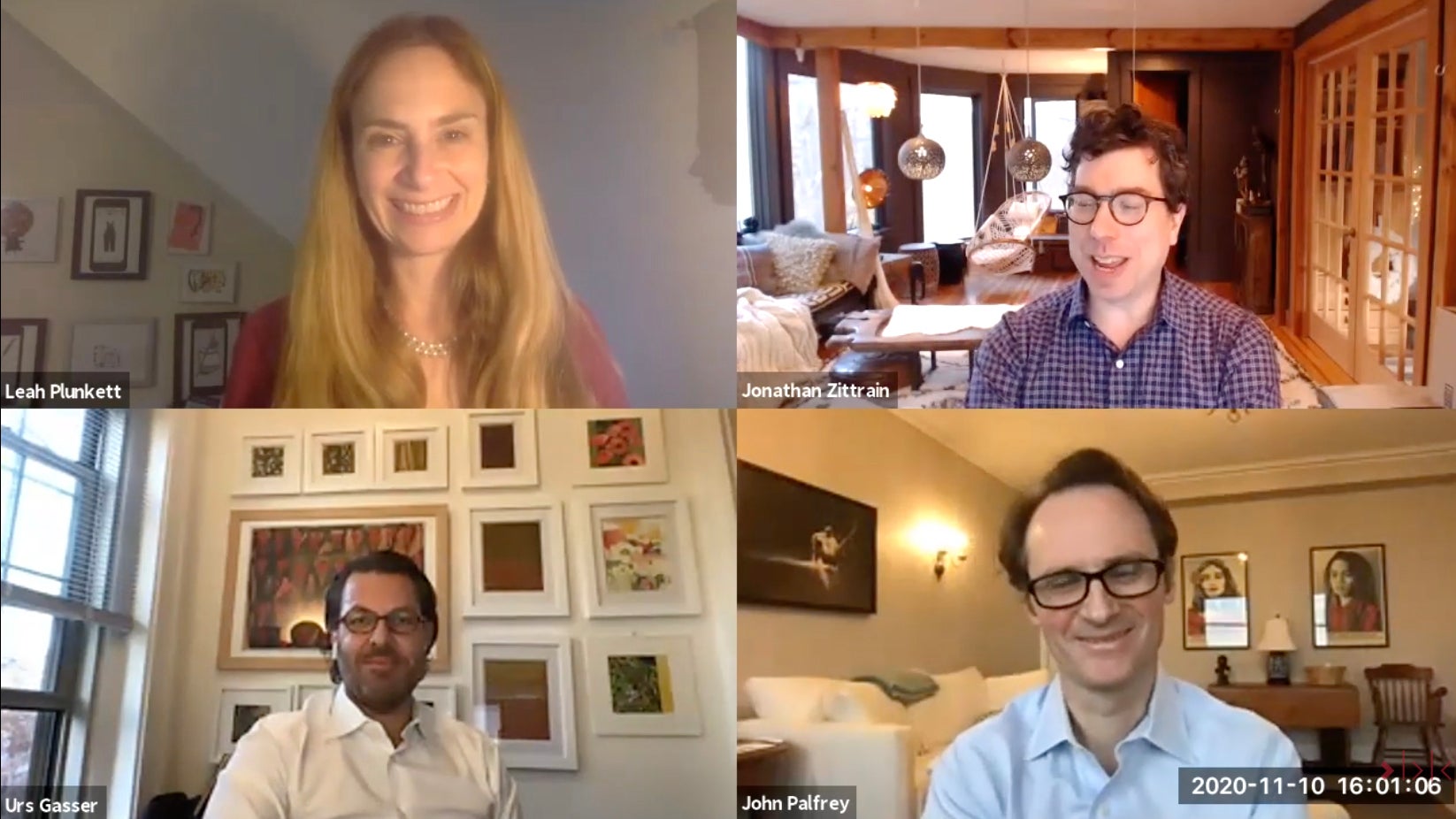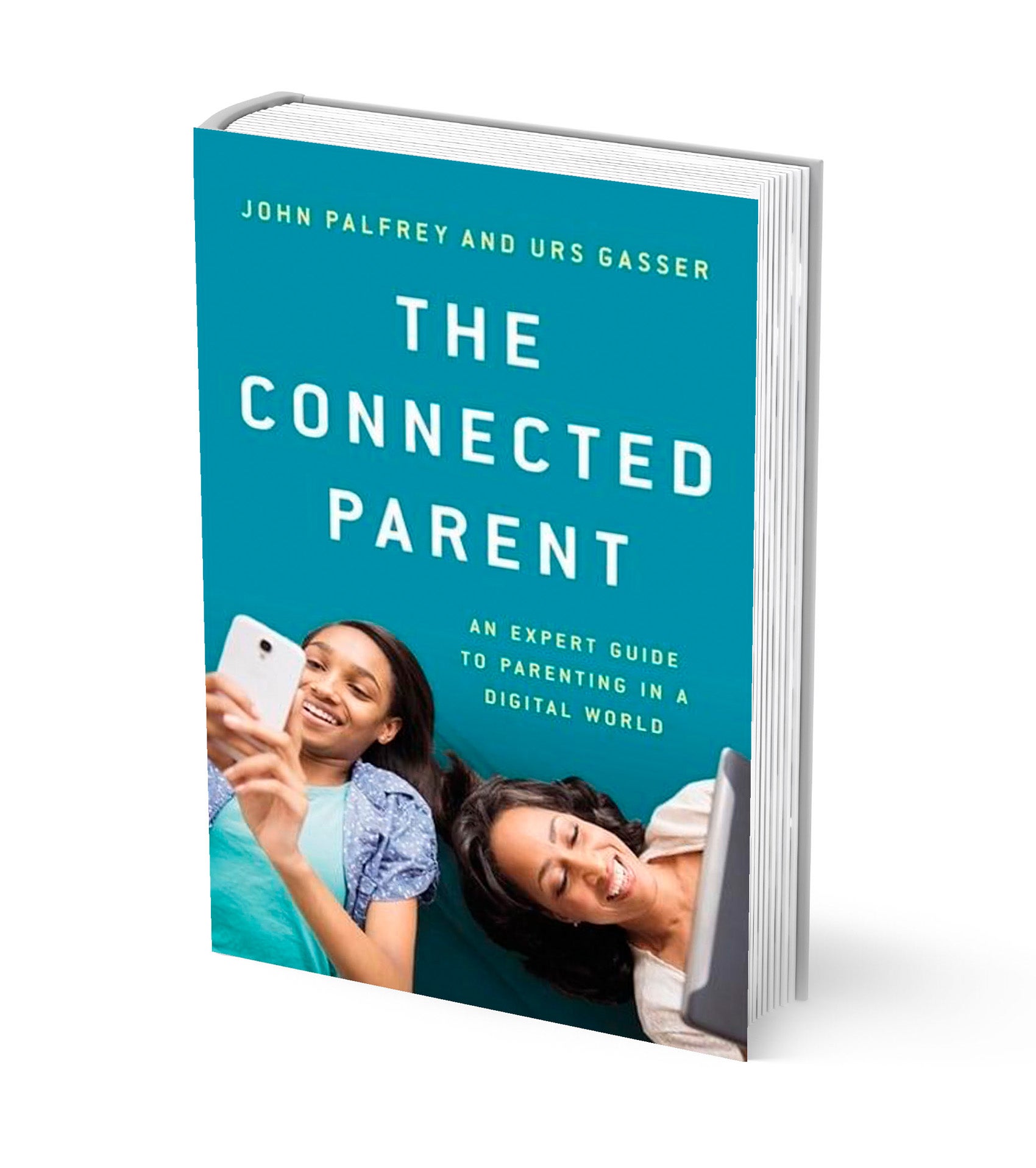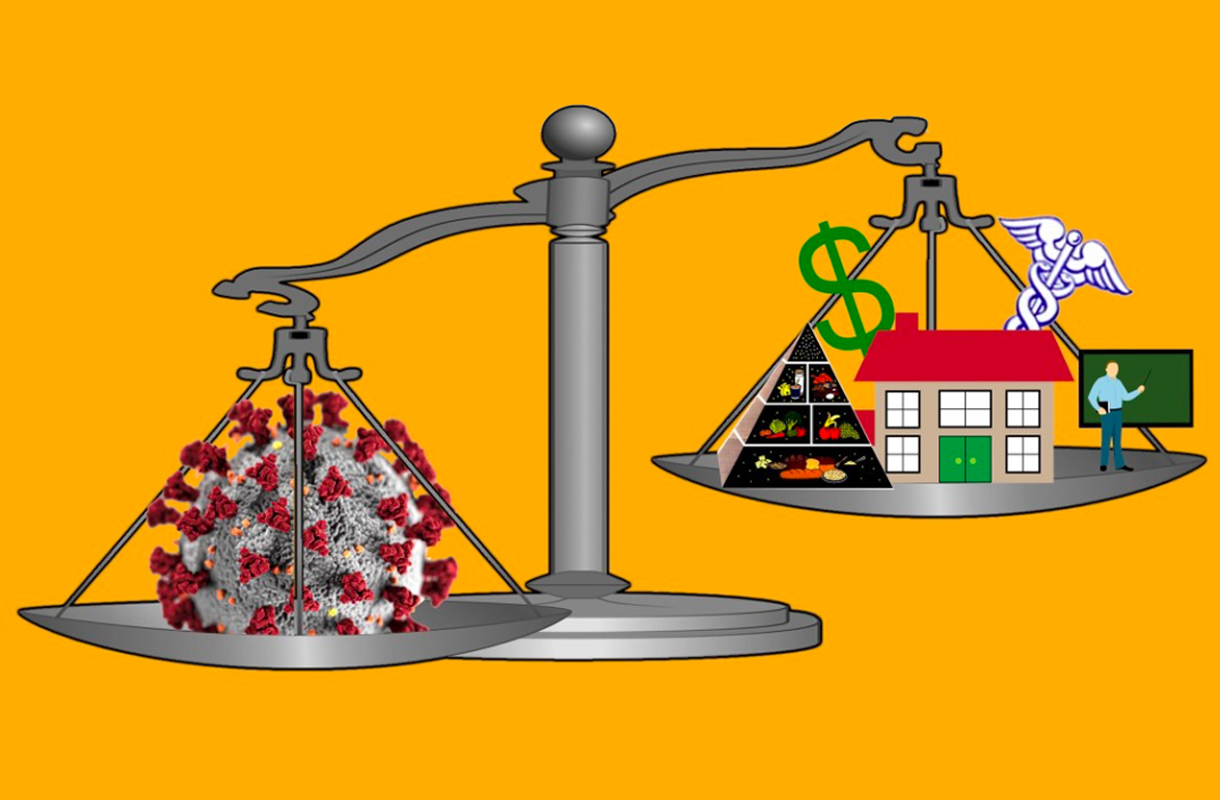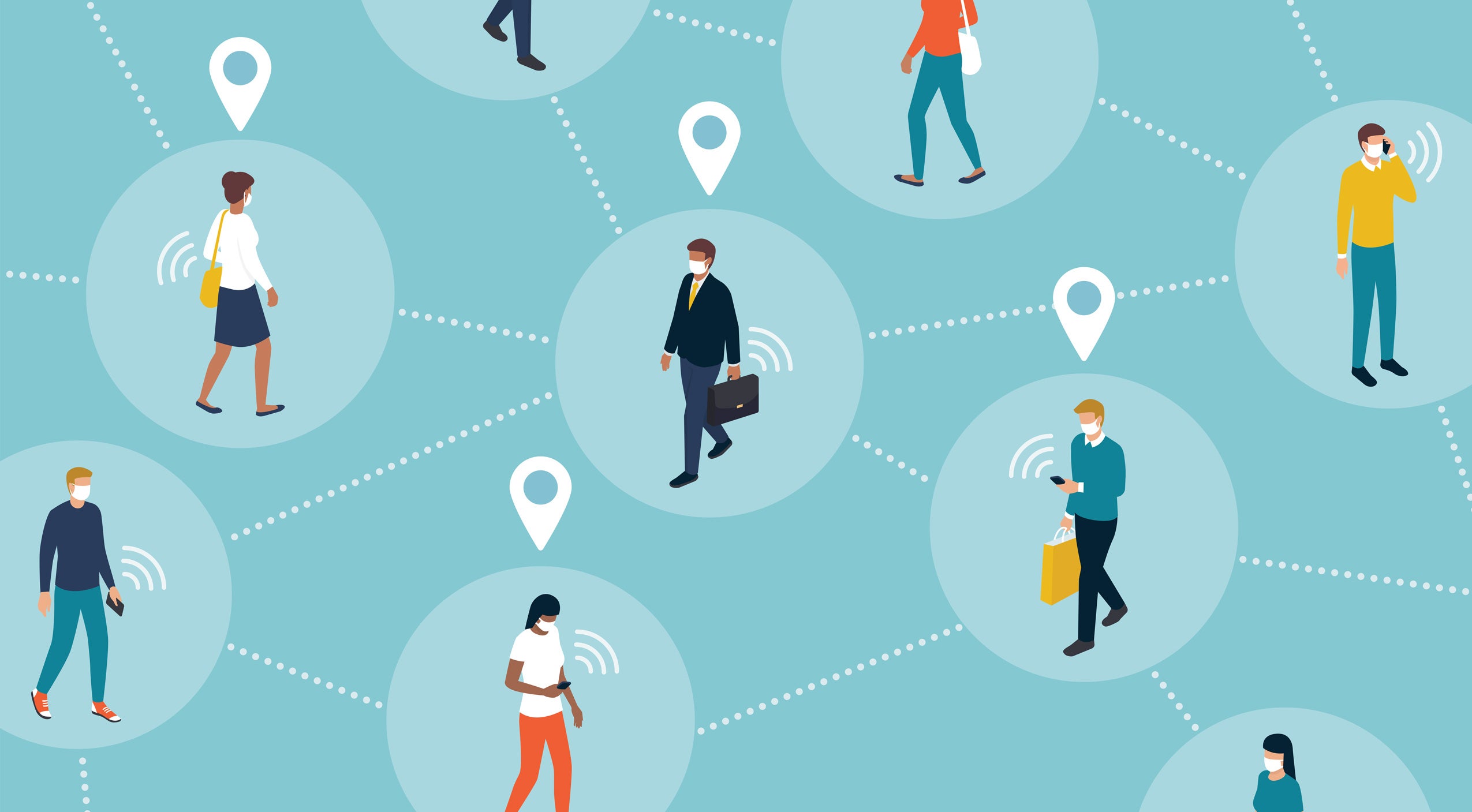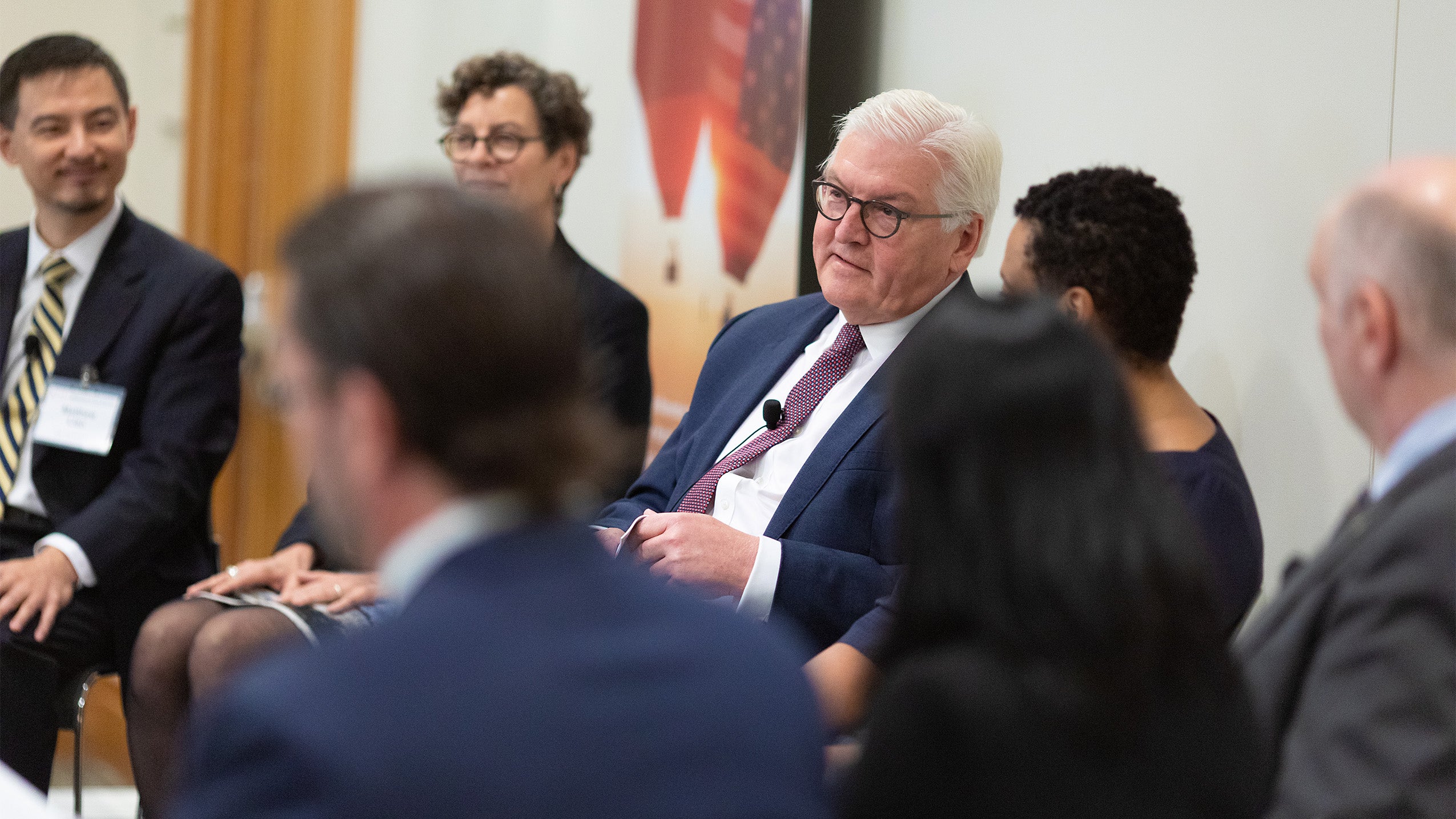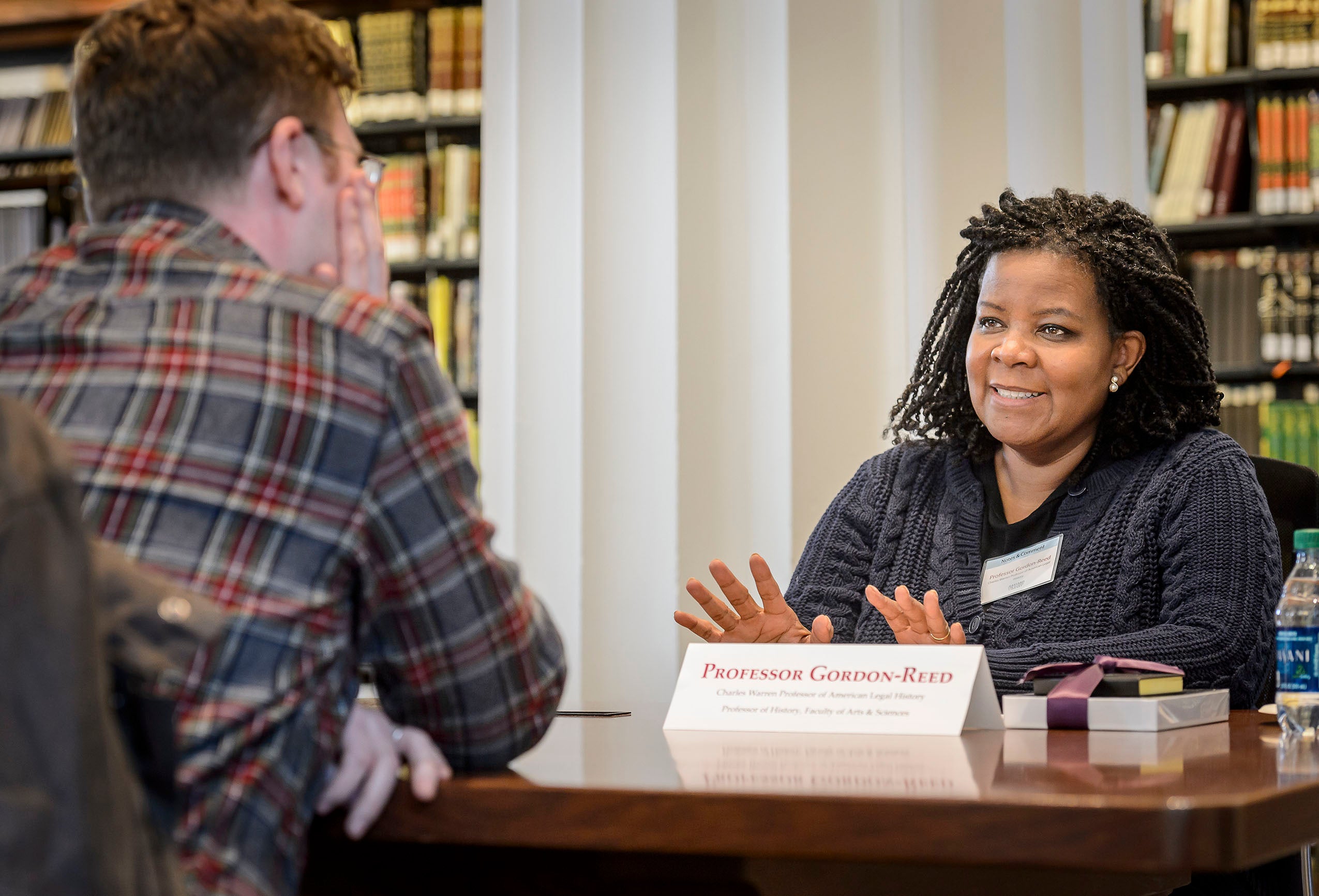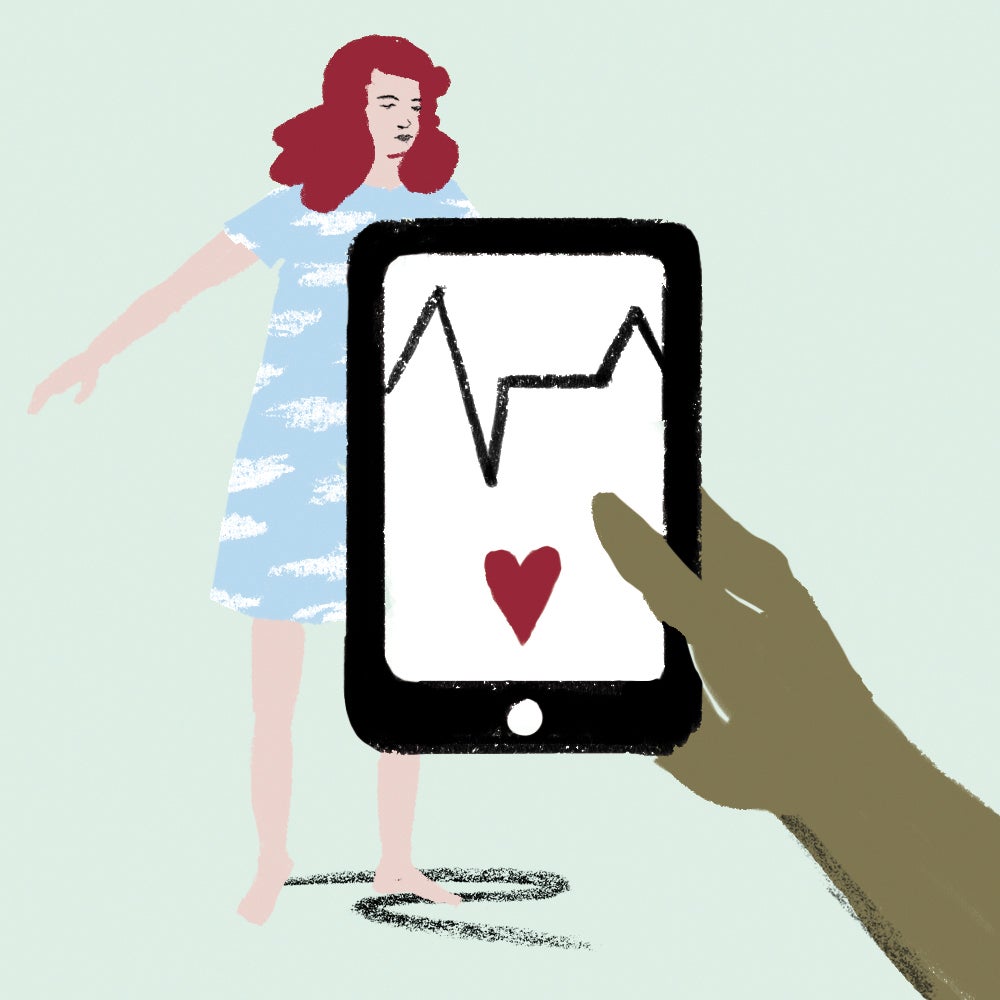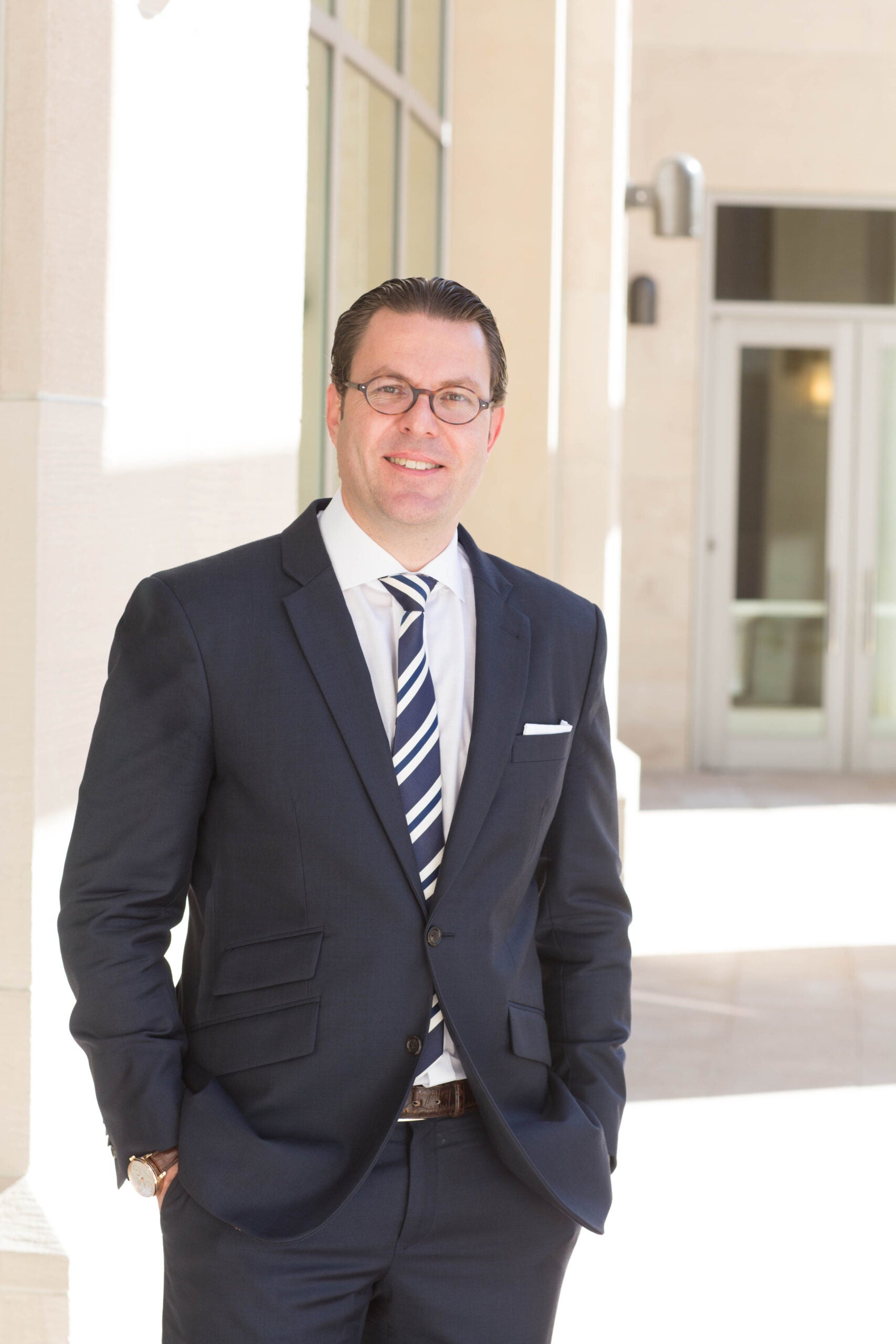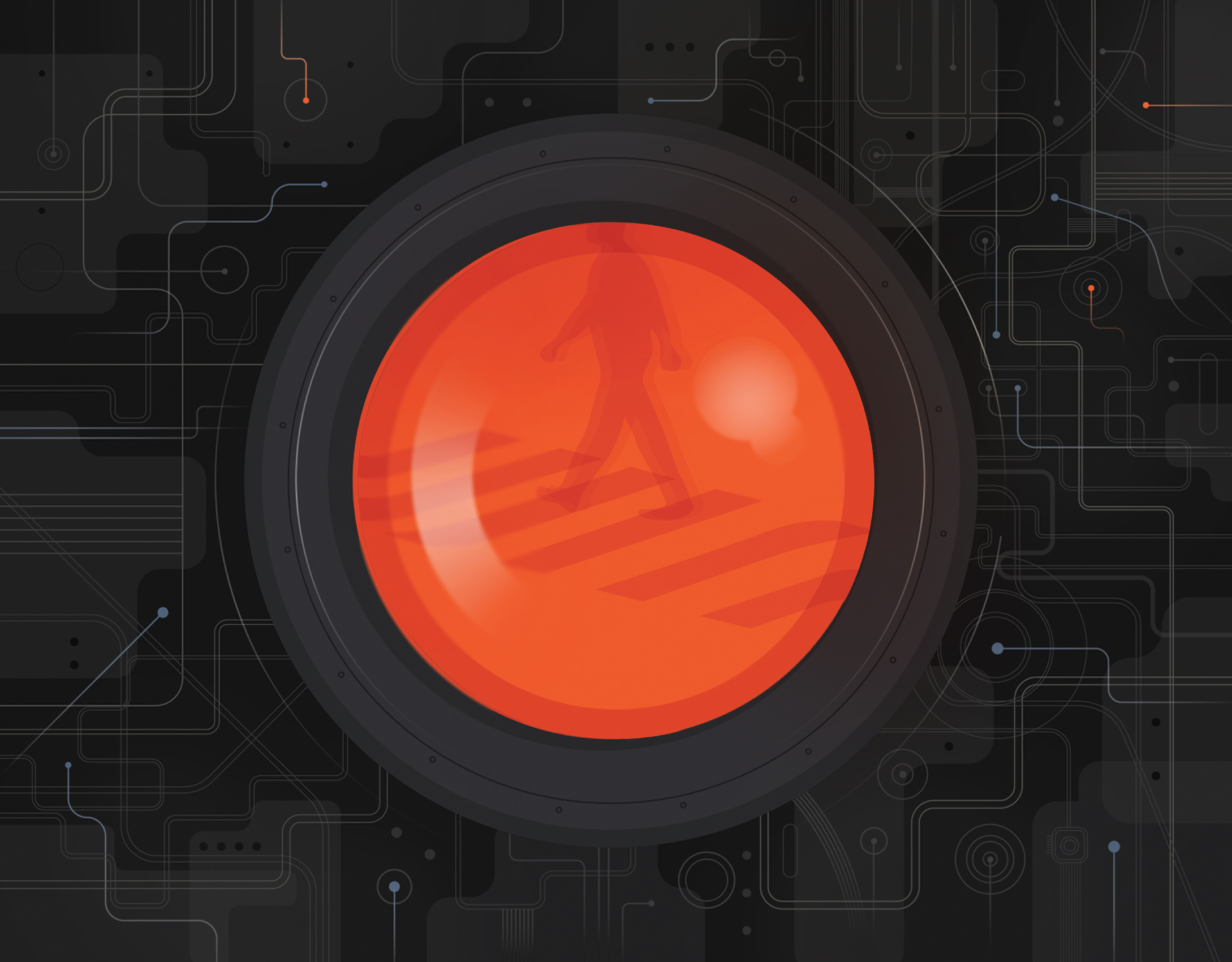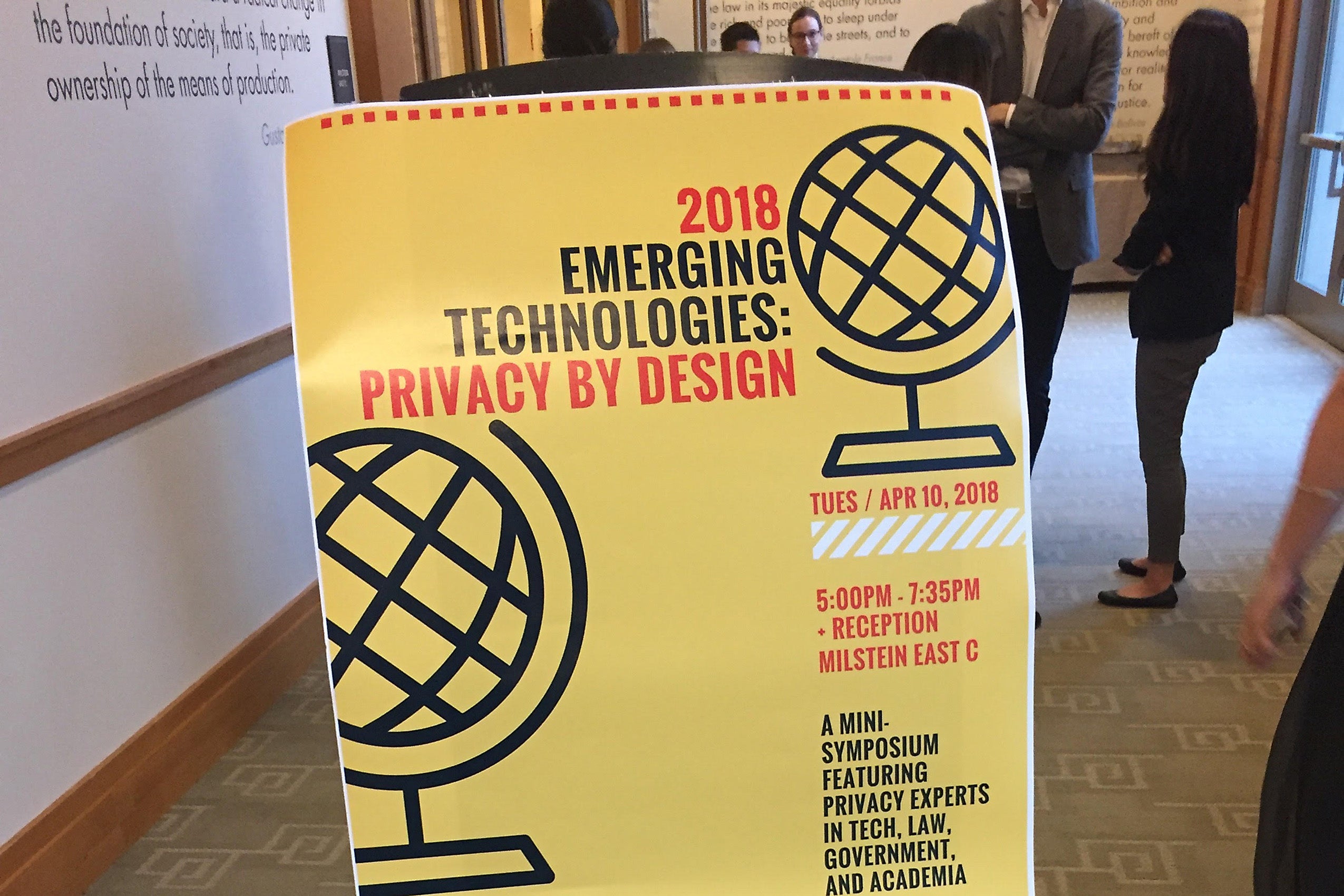People
Urs Gasser
-
Helping your child make the best use of time online
December 15, 2020
Teenagers spend an average of nine hours a day online, and many parents worry about the impact of screen time on their children. There is no need to worry, said digital experts Urs Gasser and John Palfrey, authors of the newly released book “The Connected Parent: An Expert Guide to Parenting in a Digital World.” The Gazette spoke with Gasser, professor of practice at Harvard Law School and executive director of the Berkman Klein Center for Internet and Society, and Palfrey, president of the MacArthur Foundation and former faculty director of the center, on ways parents can embrace the philosophy of “connected parenting” and help children be safe online and make the most of new media and technology.
-
‘The Connected Parent’ offers guidance, insight into digital parenting
November 16, 2020
“The Connected Parent,” a new book by John Palfrey ’01 and Urs Gasser LL.M. ’03 is a practical guide for addressing concerns brought on by the COVID-19 pandemic and navigating an increasingly digital world.
-
Books in Brief: Fall 2020
October 20, 2020
New works on redeeming the administrative state, navigating parenting in a world in which children are immersed in technology, and understanding the importance of understanding how much information you need.
-
The law is ‘tested and illuminated during this pandemic’
September 16, 2020
In the first colloquium of a sweeping new series, “COVID-19 and the Law,” five Harvard Law faculty members grappled with the challenges, limitations, and opportunities of governmental powers during a public health crisis.
-
The Berkman Klein Center for Internet & Society at Harvard University is currently taking the lead in the effort to explore the ways data can be mined to increase understanding of COVID-19 and to fight it more efficiently.
-
Aggregated mobility data could help fight COVID-19
March 25, 2020
An article by Urs Gasser: As the coronavirus disease (COVID-19) epidemic worsens, understanding the effectiveness of public messaging and large-scale social distancing interventions is critical. The research and public health response communities can and should use population mobility data collected by private companies, with appropriate legal, organizational, and computational safeguards in place. When aggregated, these data can help refine interventions by providing near real-time information about changes in patterns of human movement. Research groups and nonprofit humanitarian agencies have refined data use agreements to stipulate clear guidelines that ensure responsible data practices (1). Tools for specifying different levels of privacy for different users, such as the OpenDP platform (2), can effectively manage data access, and aggregation steps have been carefully reviewed on a legal and methodological basis to ensure that the analyses follow ethical guidelines for human participants (3). To monitor social distancing interventions, for example, rather than showing individual travel or behavior patterns, information from multiple devices is aggregated in space and time, so that the data reflects an approximation of population-level mobility (4).
-
AI Innovators Should Be Listening to Kids
November 26, 2019
An article by Urs Gasser: From Greta Thunberg’s student-led climate strikes to the youth-driven protests in Hong Kong and Chile, the next generation is increasingly demanding a voice on pressing issues. Youth movements are reenergizing paralyzed debates among adults with fresh perspectives, inconvenient questions, and the rhetorical power of having to live with the long-term fallout of our short-term thinking. With another monumental societal transformation on the horizon—the rise of artificial intelligence—we have an opportunity to engage the power and imagination of youth to shape the world they will inherit...The center I lead at Harvard University, the Berkman Klein Center for Internet and Society, works to integrate youth voices into our research. Through our Youth and Media project, we have partnered with young people, educators, researchers, and practitioners to design more than 100 educational tools to teach and engage youth about the digital world.
-
On Nov. 1, German Federal President Frank-Walter Steinmeier discussed the "Ethics of Digital Transformation" at an event hosted by Harvard's Berkman Klein Center for Internet and Society.
-
The long, deep ties between Harvard and Germany
May 22, 2019
In 1971, Guido Goldman, founding director of the Minda de Gunzburg Center for European Studies (CES), walked into a meeting with West Germany’s then-finance minister, Alex Möller, hoping for a gift to help support the center. He left with a sweeping offer that he couldn’t have imagined. “I was kind of blown away,” said Goldman, recalling that meeting. He had envisioned a $2 million gift to the center, then known as the Western European Studies program, as a way for Germany to say thanks for the aid that the U.S. had given it in the years following the world wars. ... Through high-profile programs such as these, Harvard and its experts remained steady players in German and U.S. relations. They are often called when new initiatives arise across the Atlantic. Take, for example Urs Gasser, executive director of the Berkman Klein Center for Internet & Society and a professor of the practice at the Law School. Last year he was tapped to become a member of Merkel’s German Digital Council, which advises her government on topics like the role of data and digitizing systems and works on projects such as streamlining applications. “If Angela Merkel calls you and says, ‘Look, I need your advice,’ you’re likely to say yes,” Gasser said.
-
Collaboration zone
April 26, 2019
Library event provides unique opportunity for faculty-student interaction.
-
Faculty Books in Brief: Winter 2019
January 29, 2019
With the increased use of a massive volume and variety of data in our lives, our health care will inevitably be affected, note the editors of a new collection, one of the recent faculty books captured in this section.
-
Why your online data isn’t safe
October 3, 2018
In a Q&A with the Harvard Gazette, Urs Gasser LL.M. ’03, executive director of the Berkman Klein Center, discusses what might be done to protect users from companies that profit from people’s data.
-
Why your online data isn’t safe
October 3, 2018
...Urs Gasser, LL.M. ’03, is executive director of the Berkman Klein Center for Internet & Society at Harvard University and a professor of practice at Harvard Law School. His research and teaching focus on information law and policy, and he writes frequently about privacy, data protection, and the regulation of digital technology. Gasser discussed the state of data privacy with the Gazette via email and suggested what might be done to protect users from companies that profit from people’s data.
-
Big questions raised by big data
September 20, 2018
During the introduction to the book launch event for “Big Data, Health Law, and Bioethics,” one of the editors, Harvard Law School Professor I. Glenn Cohen ’03, faculty director of the Petrie-Flom Center for Health Law Policy, Biotechnology, and Bioethics, told a story about how powerful – and perhaps foreboding – big data can be.
-
Berkman Klein Center announces 2018-2019 community
August 2, 2018
Last month, the Berkman Klein Center for Internet & Society at Harvard University announced the incoming and returning fellows, faculty associates, and affiliates who together will form the core of the Center’s networked community in the 2018-2019 academic year.
-
Morality in the Machines
June 26, 2018
Researchers at Harvard’s Berkman Klein Center for Internet & Society are collaborating with MIT scholars to study driverless cars, social media feeds, and criminal justice algorithms, to make sure openness and ethics inform artificial intelligence.
-
Emerging Technologies: Privacy by Design
April 18, 2018
Students of Professor Urs Gasser’s Spring 2018 Comparative Digital Privacy seminar hosted a symposium on 'Privacy by Design,' convening experts from government, private practice, industry, and academia to weigh in on all things privacy-related, from the difficulty of defining privacy to a comparison of the regulatory regimes in the United States and the European Union.
-
Congress Never Wanted to Regulate Facebook. Until Now
April 12, 2018
...In Silicon Valley, heedlessness and recklessness have traditionally been seen as virtues–Facebook’s early internal rallying cry was “move fast and break things”–and necessary precursors for innovation. But a long-simmering reality check is coming to a head across the high-tech industry. While privacy concerns and even large-scale data breaches are nothing new, experts say the fracas at Facebook has brought the dilemma of increasingly powerful technology into better focus. “Being these networked citizens of the world, it’s kind of a struggle, at times, to say why we care about privacy,” says Urs Gasser, executive director at Harvard’s Berkman Klein Center for Internet & Society. “But in this case, there is this element that the data about us is suddenly used to manipulate us in our decisionmaking and somehow mess with our democracy.”
